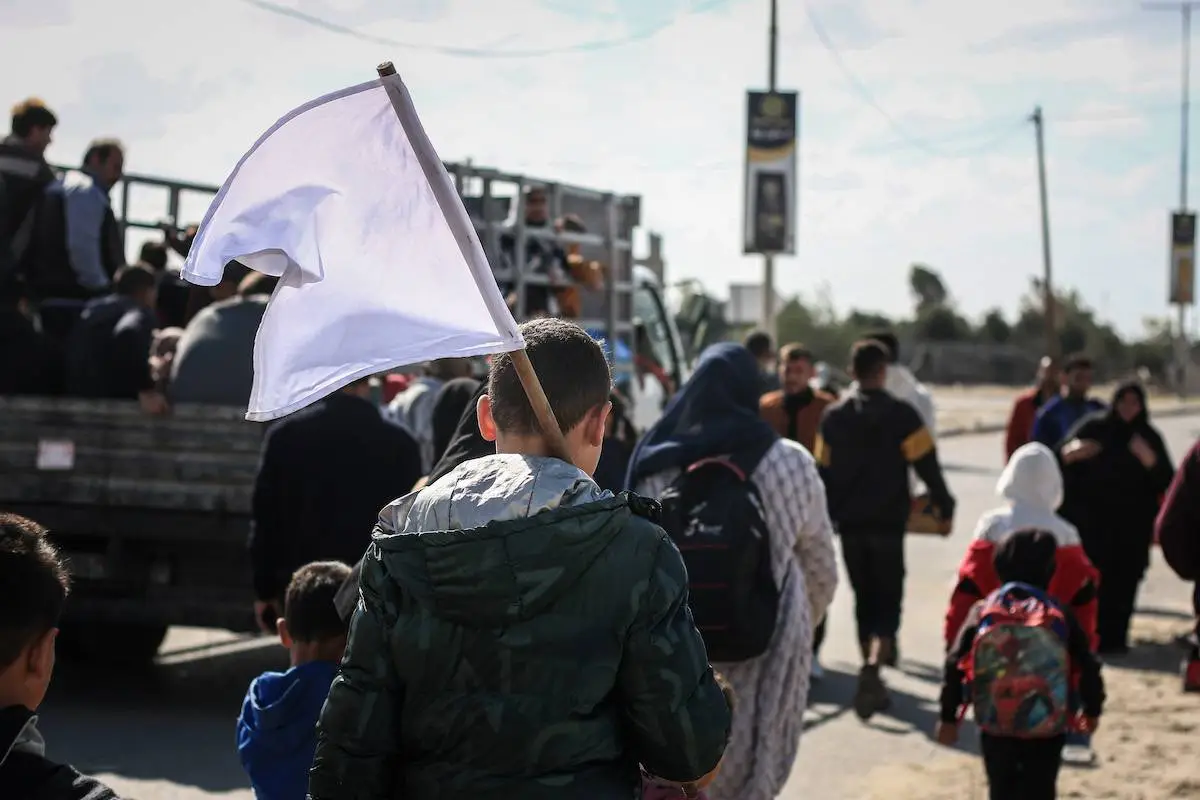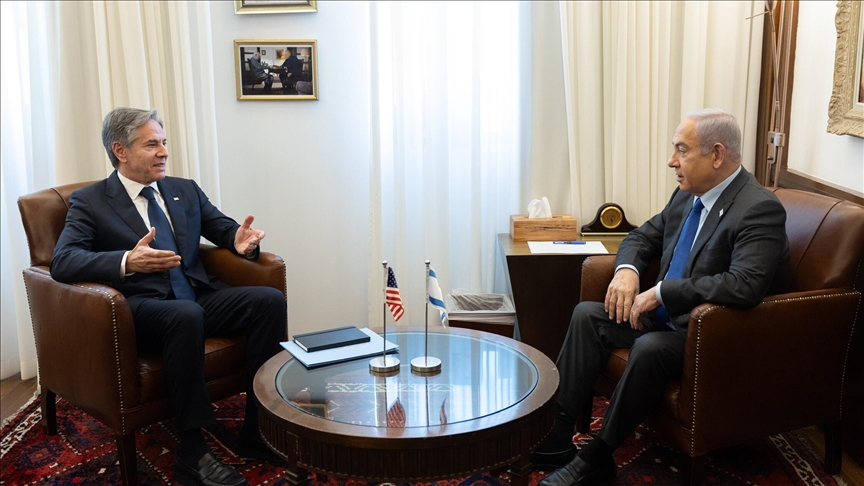Biden optimistic as Gaza cease-fire nears, while Hamas rejects new conditions
Biden optimistic as Gaza cease-fire nears, while Hamas rejects new conditions
August 17, 2024 11:04 AM GMT+03:00
In a significant diplomatic push, U.S. President Joe Biden expressed cautious optimism about the progress of cease-fire talks between Israel and Hamas, even as Hamas rejected new conditions proposed during negotiations.
The conflict, which has raged for over 10 months, has left Gaza devastated and the international community anxious for a resolution.
Biden's cautious optimism about cease-fire
- President Joe Biden struck a hopeful tone on Friday, stating, "We are closer than we've ever been. I don't want to jinx anything. We may have something, but we're not there yet."
- The President's comments came as negotiators from the US, Egypt, and Qatar departed Doha after two days of "serious and constructive" talks aimed at finalizing a cease-fire.
What is the cease-fire proposal between Israel, Hamas
- According to a Wednesdayop-ed in The Washington Post by a senior U.S. official, the agreed framework includes three stages. In the first phase, Hamas would release 33 hostages, including women, men over 50 and injured captives. In return, Israel would release hundreds of Palestinian prisoners and withdraw forces from densely populated areas along Gaza’s eastern border.
- Mediators presented a "bridging proposal" to narrow the remaining gaps between Israel and Hamas, with plans to reconvene in Cairo next week.
- A senior Biden administration official described the proposal as "essentially the same as what Biden laid out in May with some clarifications based upon subsequent discussions and some of the details and implementation."
- This proposal, consistent with Biden's principles from May 31, 2024, and Security Council Resolution No. 2735, is aimed at securing a comprehensive arrangement that includes humanitarian provisions and the release of hostages and detainees.
Why did Hamas reject new conditions?
- Despite the progress, Hamas swiftly rejected what it called "new conditions" introduced by Israel in the latest cease-fire plan.
- An informed source revealed that Hamas opposed conditions such as maintaining Israeli troops on Gaza's border with Egypt and specific terms related to the exchange of Palestinian prisoners for Israeli hostages.
- Israeli Prime Minister Benjamin Netanyahu urged mediators to pressure Hamas to accept the May 27 principles, while Jordanian Foreign Minister Ayman Safadi placed the blame on Netanyahu for blocking the deal.
Israeli Prime Minister Benjamin Netanyahu (R) holds bilateral talks with US Secretary of State Antony Blinken (L) in Tel Aviv, Israel, Jan. 9, 2024. (AA Photo)
US, UK, France pressure Israel about cease-fire
- U.S. Secretary of State Antony Blinken is scheduled to visit Israel this weekend to push the latest proposal forward and "underscore the critical need for all parties in the region to avoid escalation or any other actions that could undermine the ability to finalize an agreement."
- Diplomatic pressure on Israel has increased, with British Foreign Secretary David Lammy and French counterpart Stéphane Séjourné holding talks in Israel to urge a Gaza ceasefire.
- The ongoing conflict has also fueled violence in the occupied West Bank, where Israeli settlers have attacked Palestinian villages, leading to international condemnation and calls for sanctions against Israeli officials.
Gaza reports 1st polio case
- Gaza remains in a dire humanitarian crisis, with more than 40,000 Palestinians killed, mostly women and children. The region faces severe shortages of food, water, and medical supplies, with the World Health Organization warning of potential outbreaks of preventable diseases.
- In a stark reminder of the health crisis, Gaza reported its first polio case in 25 years. The Palestinian health ministry announced that a 10-month-old child had been diagnosed with polio, raising alarms about the territory's collapsing healthcare infrastructure.
What will happen?
- Technical teams from the U.S., Egypt and Qatar will work in the coming days to iron out the implementation details, including arrangements for humanitarian aid and specifics regarding the hostages.
- The mediators are set to reconvene in Cairo next week to finalize the deal, which has been months in the making.
August 17, 2024 11:04 AM GMT+03:00

